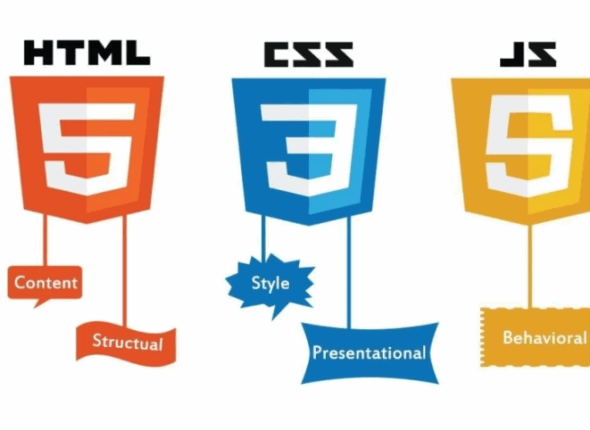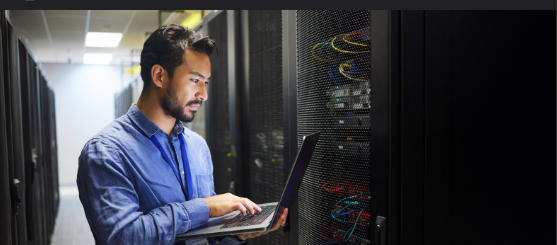Currently Empty: $0.00
- Description
- Curriculum
- FAQ
- Reviews
This comprehensive course is designed to provide a strong foundation in DevOps, a modern approach to software development that emphasizes collaboration, automation, and continuous delivery. Students will learn the core principles behind the DevOps culture and master the essential tools used to automate the entire software development lifecycle, from code commit to production deployment.
Intended Audience
This course is for beginners and is ideal for:
-
Aspiring DevOps Engineers who want to build a career in this high-demand field.
-
Software Developers looking to understand the deployment process and automate their workflow.
-
System Administrators and IT Operations Professionals who want to learn modern automation and cloud practices.
-
Anyone interested in learning how to build and deliver software more efficiently and reliably.
Module 1: DevOps Fundamentals
-
1What is DevOps? The Fundamentals
Welcome to the first lesson of our DevOps course! This lesson lays the groundwork by defining what DevOps is and exploring the core principles that drive this transformative approach to software development and IT operations.
-
2The Software Development Lifecycle (SDLC)
This lesson explores the different phases of the Software Development Lifecycle (SDLC), contrasting the traditional, rigid models with modern, flexible approaches like Agile and DevOps.
-
3Core Concepts of DevOps
This lesson covers the essential concepts that form the backbone of a successful DevOps practice. We'll explore how these principles automate and streamline the entire software delivery process.
Module 2: Version Control and Automation
-
4Git for DevOps
This lesson is your introduction to Git, the foundational tool for modern software development and a cornerstone of DevOps. We'll cover the essential commands and collaborative practices that enable teams to work together efficiently and automate their workflows.
-
5Introduction to Automation
Automation is a core pillar of DevOps. This lesson explains why we automate and introduces the essential scripting languages used to build automated workflows.
Module 3: Infrastructure and Configuration Management
-
6Virtualization and Containerization
This lesson introduces two fundamental technologies for modern infrastructure management: virtualization and containerization. We'll explore how they enable developers and operations teams to create consistent, isolated environments for their applications.
-
7Infrastructure as Code (IaC)
This lesson introduces Infrastructure as Code (IaC), a core DevOps practice that allows you to manage and provision your infrastructure using code and automation, rather than through manual configuration.
-
8Configuration Management
This lesson introduces configuration management, a core DevOps practice focused on maintaining the consistency and desired state of your servers. While IaC provisions the infrastructure, configuration management sets up the software and services on that infrastructure.
Module 4: CI/CD Pipelines
-
9Introduction to CI/CD Tools
This lesson provides an overview of Continuous Integration/Continuous Delivery (CI/CD) tools, the automated engines that drive a DevOps pipeline. We'll explore the most popular servers and understand their roles in modern software development.
-
10Building a CI/CD Pipeline with Jenkins
This lesson provides a hands-on guide to building a CI/CD pipeline using Jenkins, the most widely used open-source automation server. We'll cover the essential steps to get a pipeline up and running.
-
11Introduction to GitHub Actions
This lesson provides an introduction to GitHub Actions, a powerful and popular CI/CD tool that's built directly into the GitHub platform. We'll explore its core concepts and walk through creating a simple workflow.
Module 5: Monitoring, Logging, and Security
-
12Monitoring and Observability:
This lesson introduces the crucial DevOps practices of monitoring and observability. We'll differentiate between these two concepts and explore the key data types and tools used to keep systems healthy and performant.
-
13Centralized Logging
This lesson focuses on centralized logging, a critical practice for managing the vast amount of data generated by modern applications. We'll explore why aggregating logs is essential and introduce the most popular logging stack.
-
14DevSecOps
This lesson introduces DevSecOps, the practice of integrating security into every stage of the DevOps lifecycle. The goal is to make security a shared responsibility, not an afterthought.
What is DevOps?
DevOps is a set of practices that combines software development (Dev) and IT operations (Ops) to shorten the software development lifecycle. It's a cultural movement that emphasizes collaboration, automation, and continuous delivery.
Who is this course for?
This course is for beginners. It is ideal for aspiring DevOps engineers, software developers, system administrators, and anyone who wants to learn how to automate the software delivery process.
What are the prerequisites for this course?
You should have a basic understanding of programming in any language and some familiarity with the command line. No prior DevOps experience is required.
What is the difference between CI and CD?
Continuous Integration (CI) is the practice of regularly merging code changes into a central repository where automated builds and tests are run. Continuous Delivery (CD) is the next step, where every code change that passes the tests is automatically prepared for a production release. The final deployment is a manual step. Continuous Deployment takes it a step further by automating the entire process, including the final deployment to production.
Will I learn to use specific tools?
Yes, the course provides practical knowledge of a range of essential tools, including:
Git for version control.
Docker for containerization.
Jenkins for building CI/CD pipelines.
Terraform for Infrastructure as Code.
Prometheus and Grafana for monitoring.
Git for version control.
Docker for containerization.
Jenkins for building CI/CD pipelines.
Terraform for Infrastructure as Code.
Prometheus and Grafana for monitoring.
Please, login to leave a review




